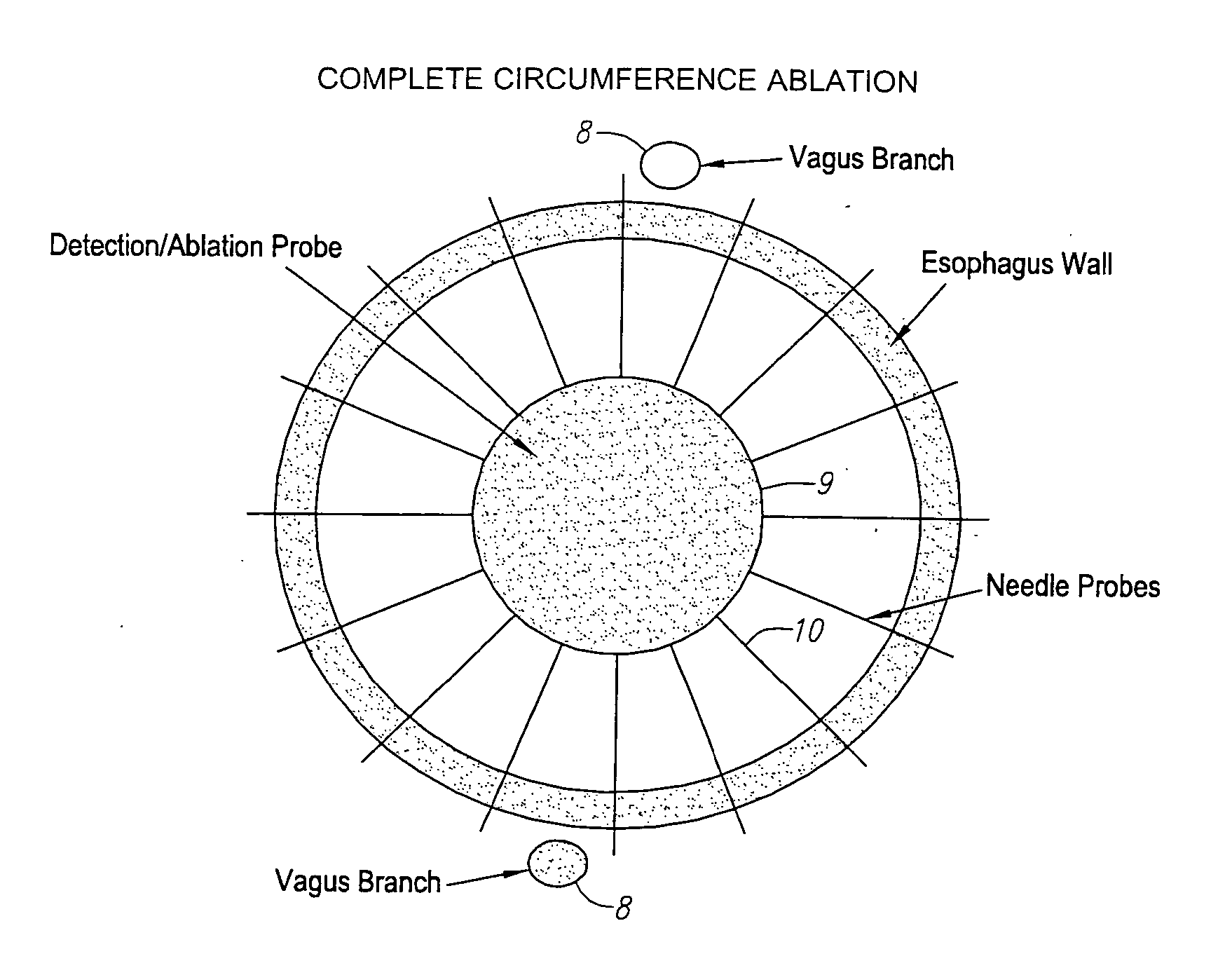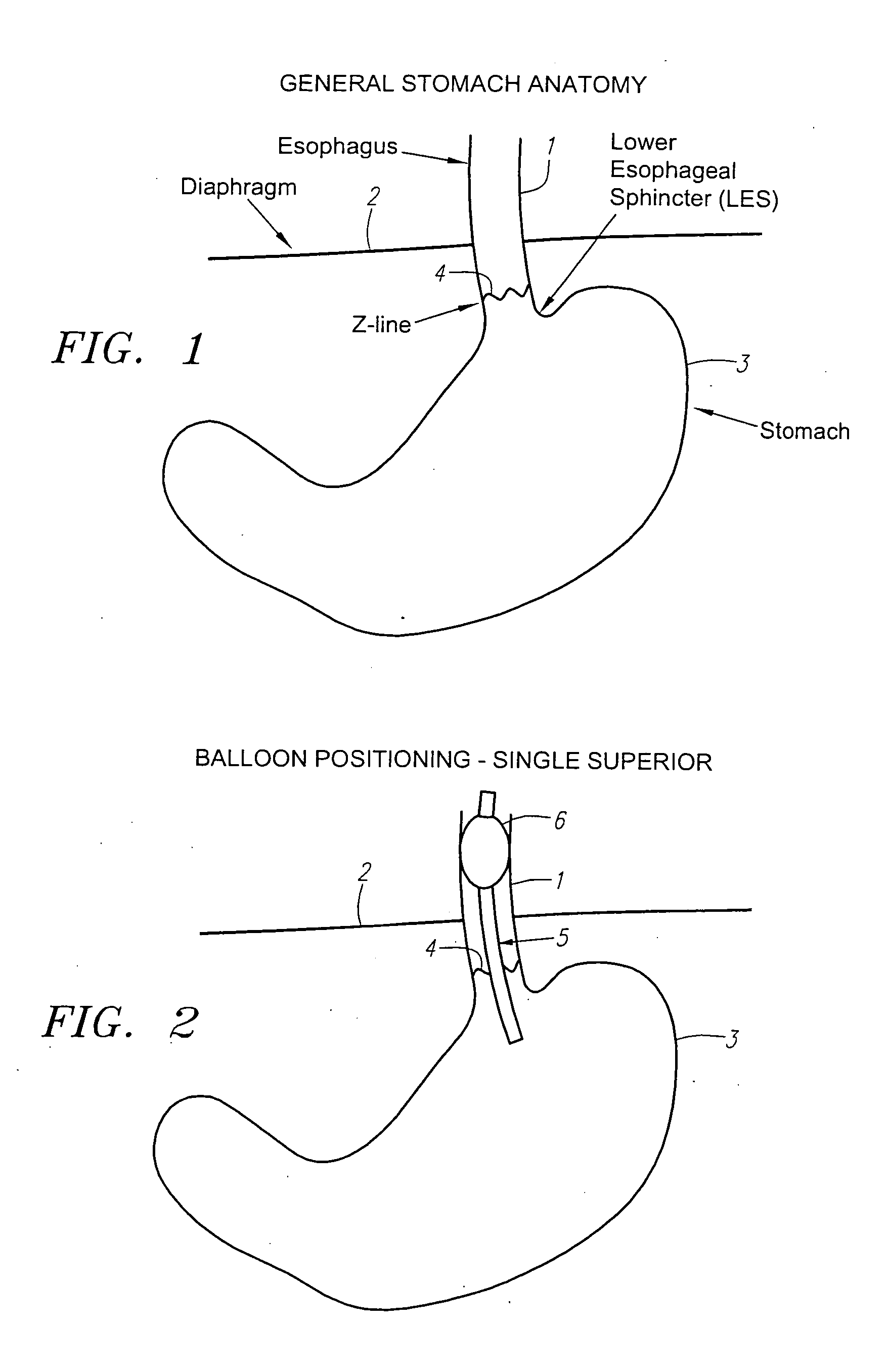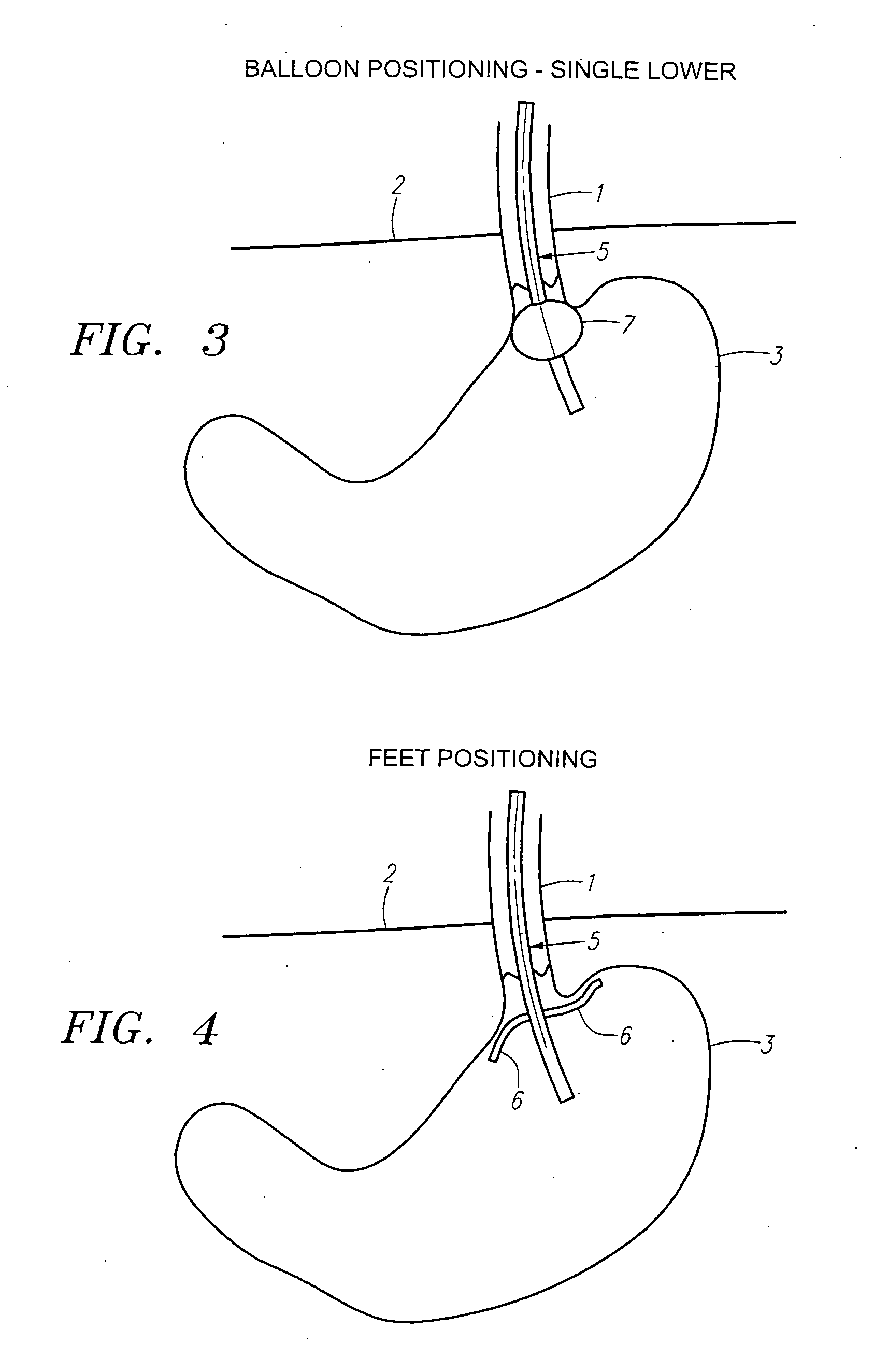Methods and apparatus for testing disruption of a vagal nerve
- Summary
- Abstract
- Description
- Claims
- Application Information
AI Technical Summary
Benefits of technology
Problems solved by technology
Method used
Image
Examples
Embodiment Construction
[0029] Before turning to the manner in which the present invention functions, it is believed that it will be useful to briefly review the anatomy of the stomach and the esophagus. The esophagus is a muscular tube that carries food from the throat to the stomach and which passes through the diaphragm. The top end of the esophagus is the narrowest part of the entire digestive system and is encircled by a sphincter (circular muscle) that is normally closed but can open to allow the passage of food. There is a similar sphincter at the point where the esophagus enters the stomach. The walls of the esophagus consist of strong muscle fibers arranged in bundles, some circular and others longitudinal. The inner lining of the esophagus consists of smooth squamous epithelium (flattened cells).
[0030] As shown in FIG. 1, the esophagus 1 extends through the diaphragm 2 into the stomach 3. Vagal nerve branches extend from the stomach along the outer wall of the esophagus to the brain. At the lowe...
PUM
 Login to View More
Login to View More Abstract
Description
Claims
Application Information
 Login to View More
Login to View More - R&D
- Intellectual Property
- Life Sciences
- Materials
- Tech Scout
- Unparalleled Data Quality
- Higher Quality Content
- 60% Fewer Hallucinations
Browse by: Latest US Patents, China's latest patents, Technical Efficacy Thesaurus, Application Domain, Technology Topic, Popular Technical Reports.
© 2025 PatSnap. All rights reserved.Legal|Privacy policy|Modern Slavery Act Transparency Statement|Sitemap|About US| Contact US: help@patsnap.com



